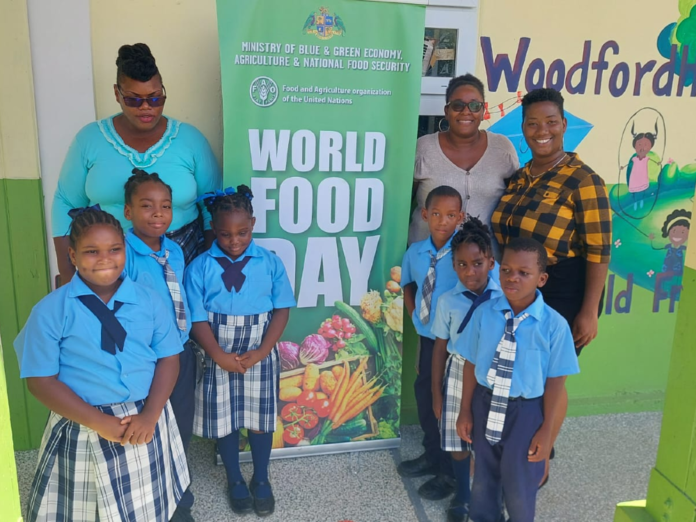
The Food and Agriculture Organisation of the United Nations in collaboration with the Ministry of Agriculture, Fisheries, Blue and Green Economy (MAFBGE) is pleased to announce the observance of World Food Day (WFD) 2023.
Every 16 October, Dominica joins approximately 150 countries around the world to inspire change to create a better, more sustainable food future for all. This year’s theme is “Water is life, water is food. “Leave no one behind“.
This year, #WorldFoodDay spotlights how water is essential to life on Earth and the foundation of our food. As rapid population growth, urbanization, economic development, and climate change put the planet’s water resources under increasing stress, the campaign will look at solutions and call for action to produce more food and other essential agricultural commodities with less water being wasted, while ensuring water is distributed equally, our aquatic food systems are protected, and nobody is left behind!
What can you do?
We all need to stop taking water for granted and start improving the way we use it in our daily lives. What we eat, and how that food is produced all affect water. We can make a difference by choosing local, seasonal, and fresh foods, wasting less of it – even by reducing food waste, and finding safe ways to reuse it while preventing water pollution.
Together, we can take water action for the future of food, people, and the planet.
- Follow a water-friendly diet
- Eat more fresh foods
- Reduce your food waste
- Save water
- Don’t pollute water
- Clean up
- Save energy, save water
- Shop sustainably
- Stay informed on water action
- Manage water use effectively
- Store and dispose of pesticides correctly
- Reduce food and water loss
- Adopt sustainable agricultural practices
- Be climate savvy
- Unite for a sustainable future
- Manage water safety for food safety
Additional information for Document
Background-Global Situation
Water is essential to life on Earth. It makes up over 50% of our bodies and covers about 71% of the Earth’s surface. Only 2.5% of water is fresh, suitable for drinking, agriculture, and most industrial uses. Water is a driving force for people, economies, and nature and the foundation of our food. Indeed, agriculture accounts for 72% of global freshwater withdrawals, but like all natural resources, fresh water is not infinite.
Rapid population growth, urbanization, economic development, and climate change are putting the planet’s water resources under increasing stress. At the same time, freshwater resources per person have declined by 20% in the past decades and water availability and quality are deteriorating fast due to decades of poor use and management, over-extraction of groundwater, pollution, and climate change. We risk stretching this precious resource to a point of no return.
Today, 2.4 billion people live in water-stressed countries. Many are smallholder farmers who already struggle to meet their daily needs, particularly women, Indigenous Peoples, migrants, and refugees. Competition for this priceless resource is increasing as water scarcity becomes an ever-increasing cause of conflict.
Around 600 million people who depend, at least partially, on aquatic food systems for a living are suffering the effects of pollution, ecosystem degradation, unsustainable practices, and climate change.

